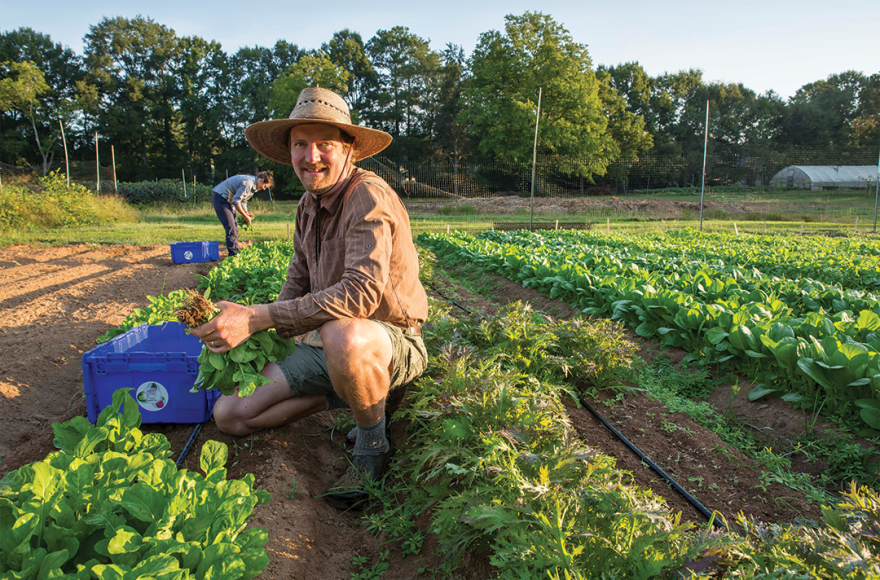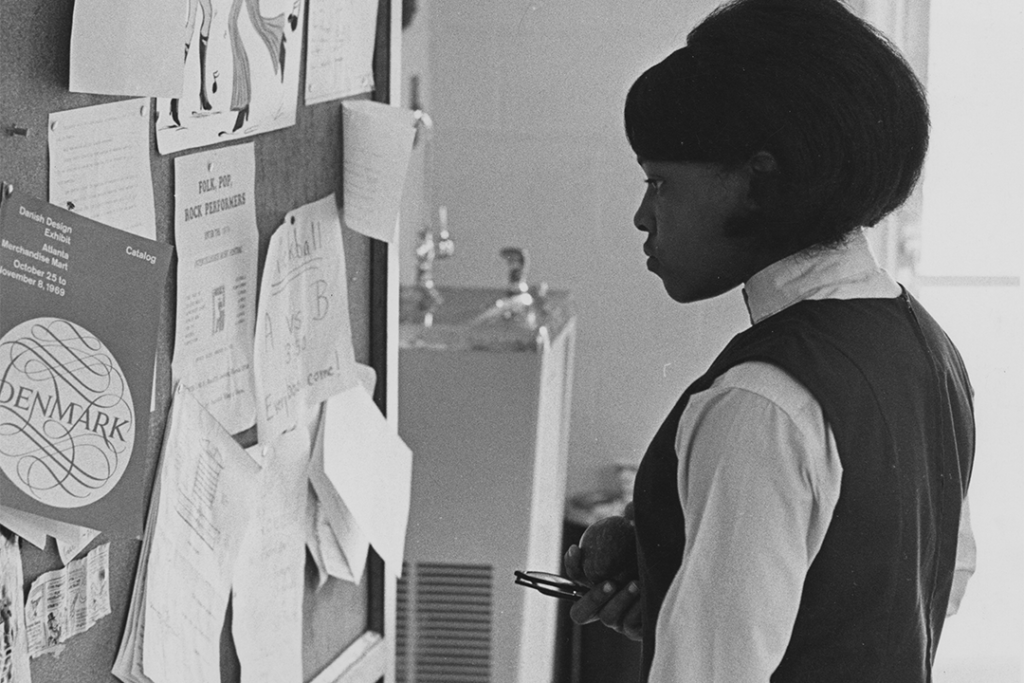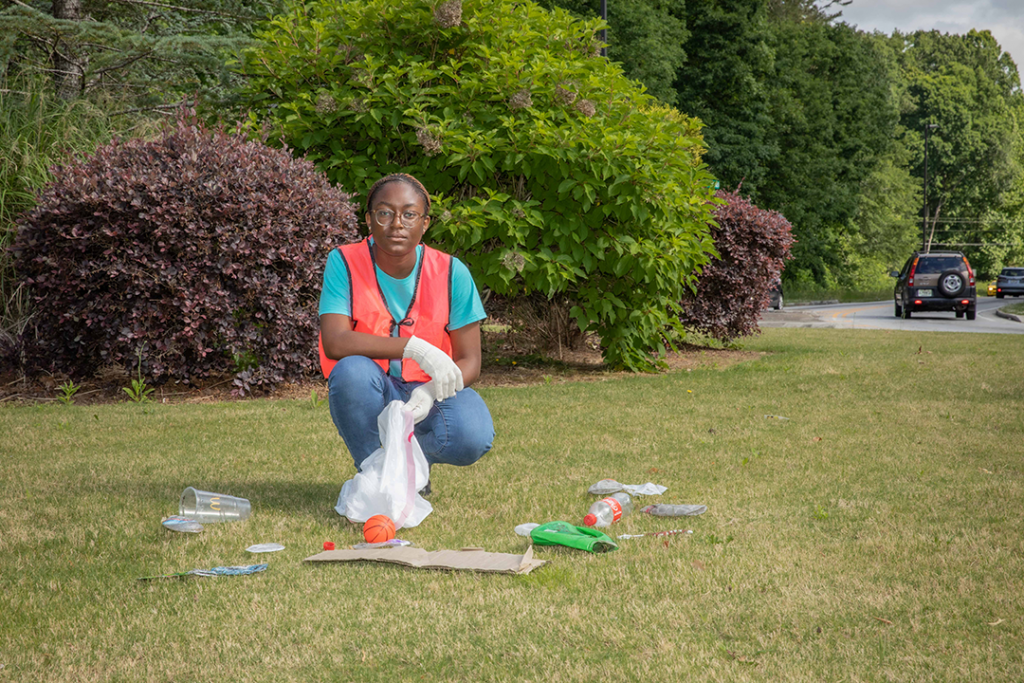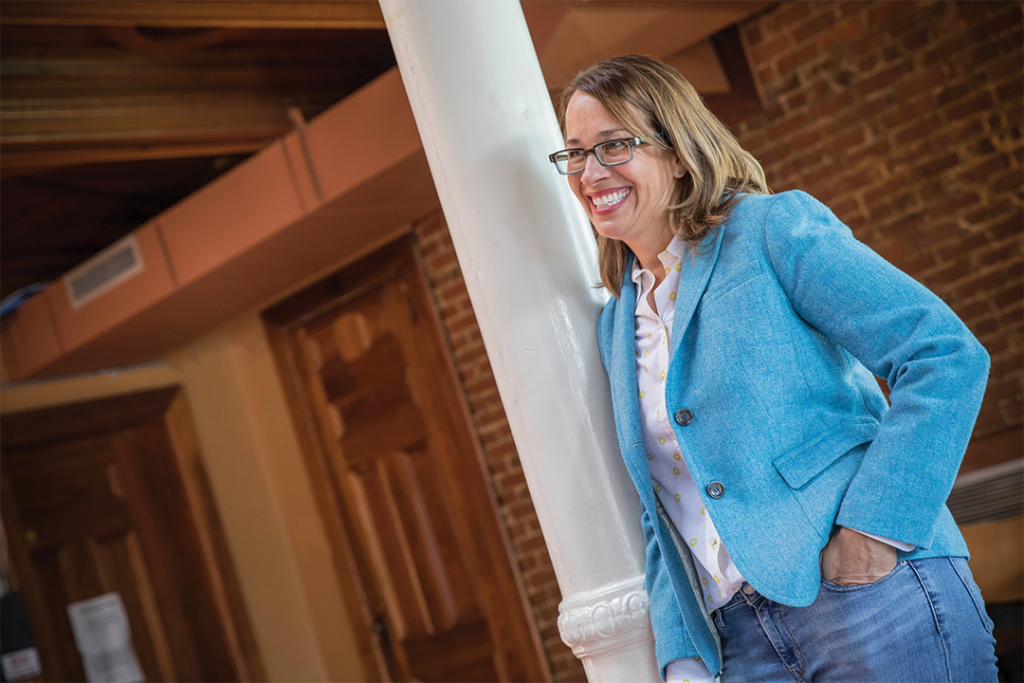The Oxford Organic Farm supplies fresh food to the Oxford College dining hall and surrounding areas while providing students with practical lessons on growing and harvesting vegetables.
Those who have driven through Oxford may have missed the Oxford Organic Farm nestled on Hwy. 81, but it nevertheless continues to have a lasting impact on the community. The 11-acre tract sits at 406 Emory Street, just 700 feet from the Oxford College campus. It opened in the fall of 2014, three years after pasture land was given to the school by alumnus Trulock Dickson.
Since then, farmer-educator Daniel Parson has run the operation while living on site. He has more than 20 years of organic growing experience. Before coming to Oxford, Parson worked in wildflower organics for four years in Dawsonville, spent two years managing an organic farm at Clemson University, where he earned his degrees in biological sciences and plant and environmental sciences, five years operating Gaia Gardens in Decatur and five years supplying local restaurants and farmers markets through Parson Produce in Clinton, South Carolina.
Parson, who was named to Mother Nature Network’s “40 Farmers Under 40” list, has taken to life in Oxford, where he now enjoys raising his family.
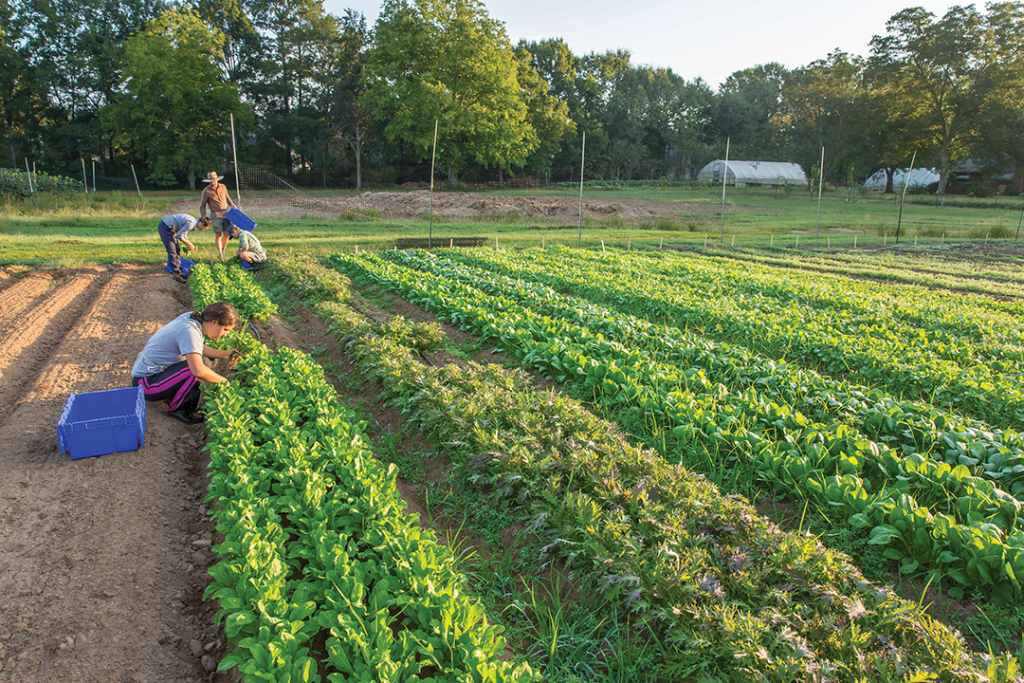
“It’s a small town where you can get to know so many people. Having the nature trail and quiet streets for running and biking is great,” said Parson, who was also selected as Georgia Organics Land Steward of the Year. “The best thing about the town and college is the people. At the farm, we get to interact with everyone: administration, faculty, staff and the students. Everyone has a reason to care about the farm because everyone eats.”
Parson treasures interactions with the students.
“They come from all different backgrounds, from growing up on farms to being from the city and never having stepped foot on one,” he said. “It is great to see the satisfaction they have when learning how to grow vegetables and seeing that seed turn into a plant and be harvested.”
“The best thing about the town and college is the people. At the farm, we get to interact with everyone: administration, faculty, staff and the students. Everyone has a reason to care about the farm because everyone eats.”
Oxford Organic Farm’s Daniel Parson
When the faculty brings students to the farm from a number of disciplines, they are interested in it for various reasons aside from simply farming. They include social justice, food access, farmworkers’ rights, economics and markets and the environmental issues that concern farming.
“We provide a practical context to what they are learning in their academic discipline, and in doing so, we create experiential learning opportunities,” Parson said, adding that work-study students are on the farm between two and 10 hours per week and oversee everything from planting to harvesting during their two years on campus.
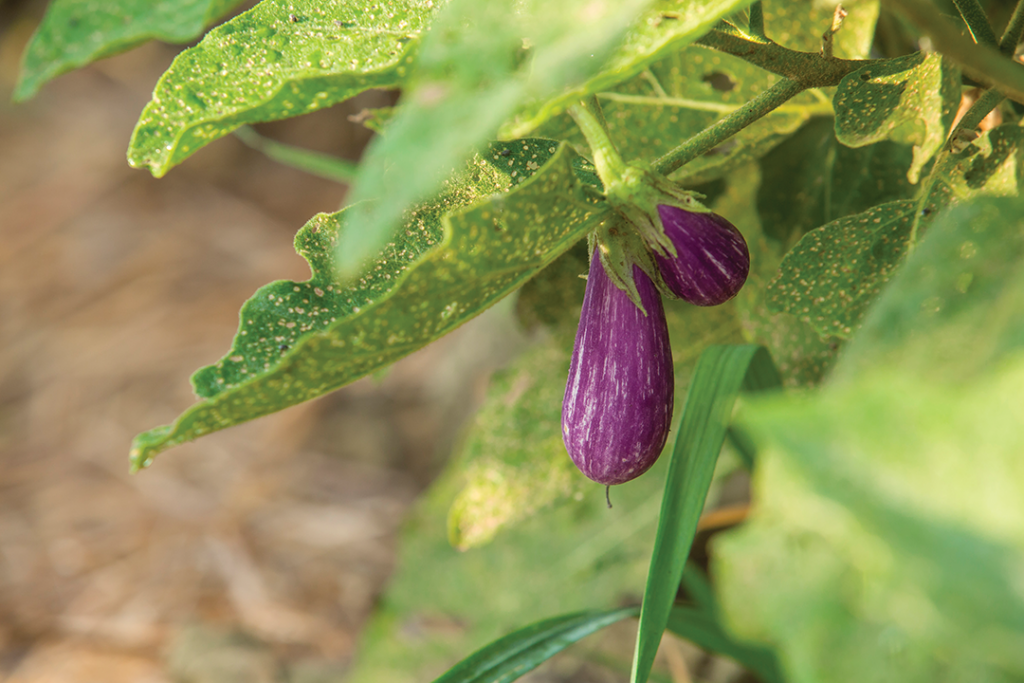
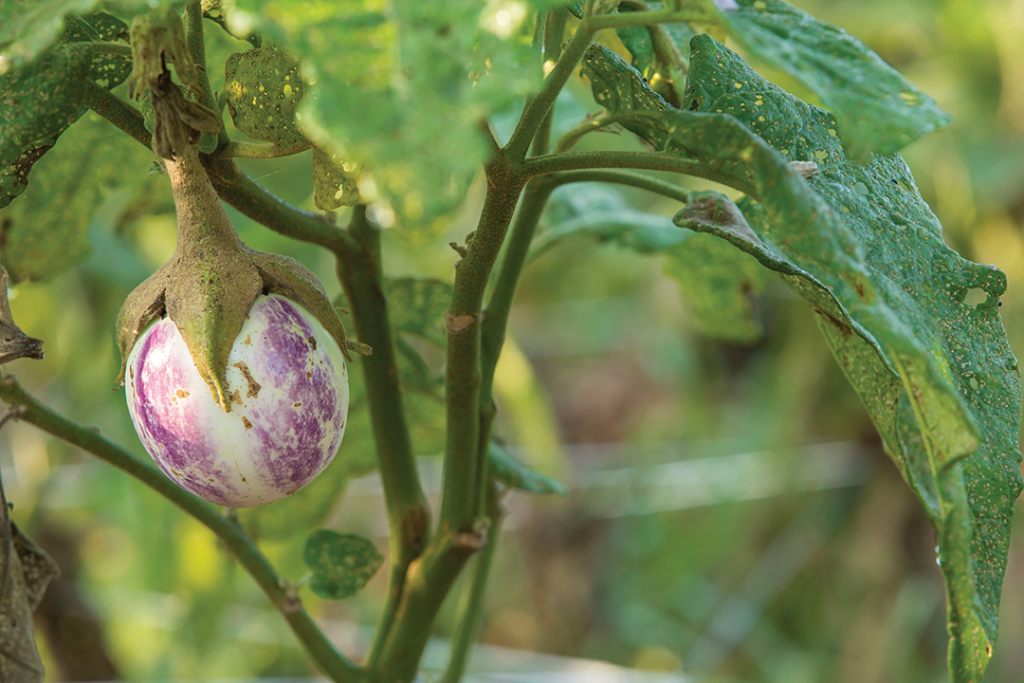
The farm mainly supports the college but has also found a variety of ways to be a part of the Oxford and Newton County communities and beyond. In addition to having a work-study program at the farm and having classes learn about the operation in a lecture hall or by visiting in person, students and staff mostly get exposure to the farm in the dining hall. Parson notes that about half of the produce from the farm is sold to the dining hall, mostly during fall semester, including sweet potatoes, greens and other ingredients for the salad bar. Students who work at the farm get to take some with them, and the rest of the crop is sold to the community in Oxford and Atlanta at farmers’ markets and through the Community Supported Agriculture (CSA) membership program.
“Sometimes students will pick the food in the morning and see it in the dining hall that afternoon or the next day,” Parson said, adding that the sale of the food to the dining hall and the community goes back to supporting the farm.

“It’s not every day you see a dining hall that gets food from right down the street,” said farm worker Raquel Luna, a first-year student from Orlando, Florida. “As someone interested in health and wellness, I thought working on the farm would be a great opportunity to build healthy habits for myself, as well as contribute to my school and community by providing wholesome, nutritious food.”
According to Parson, there is no such thing as a typical day on the farm.
“Any day, we may have student workers, classes visiting, community members volunteering or visiting, groups from Emory touring or all of the above,” he said. “Once we hit harvest season, we spend more of our time picking and packing than anything else.”
During harvest season, the week is filled with a variety of tasks, with Mondays and Wednesdays as the big harvest days. The farm delivers to Emory University’s Atlanta campus and participates in the Emory Farmers’ Market on Tuesdays, while those at the farm work on projects. The farm sells produce at the Oxford Farmers’ Market on the City Green on Emory Street from 3-6 p.m. on Thursdays, from April 25 until the end of daylight saving time in the fall.
Fridays are project days. When classes are in session, Fridays are the biggest day for student workers, with sometimes a dozen or more of them working at a time.
“I had no idea how much planning and thought goes into every aspect of maintaining an organic farm,” Luna said. “One time, I got the opportunity to sit in on a meeting about how the staff plans their crop rotation for the year, and it was really fascinating to see all the different aspects that go into consideration when they make these decisions. I think people would be surprised to learn how detail-oriented the farm’s processes are. They really do have it down to a science.”
There are no current plans to expand the farm, which used about three acres to grow 15 tons of vegetables in 2018, but staff members are looking at more ways to provide educational resources for students and also use more individual and group volunteers. Additionally, the farm recently teamed up with the Newton County Theme School’s third grade classes for educational opportunities.
“We continue to grow more each year,” Parson said. “We would like to do more [partnerships] and figure out how to make it work.”
The CSA membership program runs a total of 28 weeks. The season is split into three sections, with a 10 percent discount on sign-ups for the full season.
• Spring: April 25-June 27 for $325 (10 weeks)
• Summer: July 11-Aug. 29 for $275 (8 weeks)
• Fall: Sept. 12-Nov. 14 for $325 (10 weeks)
Local pickups are on Thursdays at the Oxford Farmers’ Market from 3-6 p.m. or by request at the Covington YMCA from 11 a.m. – 9 p.m.
Visit oxford.emory.edu/csasignup to sign up or get more information. Email daniel.parson@emory.edu with any questions.
Click here to read more stories by Michelle Floyd.

